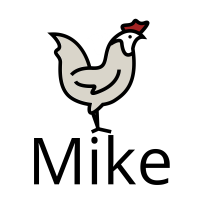For me, it may be that the toilet paper roll needs to have the open end away from the wall. I don’t want to reach under the roll to take a piece! That’s ludicrous!
That or my recent addiction to correcting people when they use “less” when they should use “fewer”


Dampening
And
Damping
One is literally making things wet.
One is reducing movement or oscillations in something.
And so many people get it wrong, then right, then wrong in the same damn paragraph. My god.
You should probably dampen your expectations on this one.
Why?
This is a hill I’m willing to die on, and as such my expectations are pretty consistent. Thus damping is not really needed.
Doesn’t mean my expectations are realistic though.
Ha! Well I was just having a laugh. Expecting that you would prefer “you should damp your expectations” and that my construction should mean “make your expectations wet.” And it turns out dampen is ambiguous. It means both moisten and dull, deaden, make weak.
Not only that, but most every form carries both meanings, and the “weaken” sense for the word damp predates the “humid” sense. Because the noun came first and it was specific to suffocating fumes in a mine that would extinguish candles, and people.
So my take now is that dampening means both “making weak” and “humidifying, moistening.” Only damping is specific to motion/energy. And I can’t recall encountering anyone using damping to mean “making wet.”
Calm down there and dampen your expectations some. He was joking.
This shows them as interchangeable for either use? What am I missing here?
https://www.merriam-webster.com/dictionary/damping
https://www.merriam-webster.com/dictionary/dampen
Historical use, vs evolving English use.
Just like literally is now figuratively.
Oh, that makes sense. Usage creep bothers me, too. Especially the “literally” thing. I know gatekeeping is unpopular, and linguists will tut-tut you for being prescriptivist. But some language shifts are just fucking dumb and make people sound dumb.
This is literally the opposite of what happened. “To damp” was used to mean “to moisten” in the 1670s, a hundred and fifty years before “dampen” started to be used for it also in the early 1800s.
As with many if not most of the pedants in this thread, you’re dying on a hill that’s actually just straight-up wrong.
You can blame Star Trek for this one. They’re constantly having to deal with Dampening fields. And the only time it was actually a field that keeps things wet, Tom got in trouble for fixing it 😞
Hey thanks for offering to die up on that hill, I didn’t know this distinction and I’ll keep it in mind moving forward.
After damping a cloth it is no longer inflammable.
deleted by creator